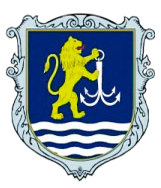PROBABILISTIC CHARACTERISTICS OF MULTIMODAL SHIPPING
Abstract
Introduction. The annual growth of multimodal shipping determines the attractiveness of this transport market segment; thus, many companies are ready to provide multimodal shipping services, that leads, on the one hand, high level competition in this market sector, on the other hand, high level requirements of cargo owners. Therefore, to ensure the competitiveness the multimodal operators need significant efforts and a high-level service. Purpose. This study aims to form a set of indicators for estimating the multimodal shipping probabilistic characteristics to provide a comprehensive assessment of shipping options in the decision-making processes. Results. This study proposes methods for estimating the probabilistic characteristics of multimodal shipping – reliability and possible increase in time. To assess the characteristics of multimodal shipping, it is proposed to use a grid graph, which provides a set and logical sequence of operations related to multimodal delivery, both basic and additional. Each operation of the technological process, including critical path operations within the grid model, is characterized by the probabilistic nature of their duration. Statistical researches of some transportation operations duration behavior within the multimodal delivery system are carried out, the normal distribution that confirms results of other researches in the given direction is proved. Estimation methods take into account the different approaches to determining the planned operation duration (average value or value guaranteed with a certain probability), as well as the possibility to estimate the values of operation duration for given level of probability. Conclusions. Along with the main shipping characteristics – cost and time, characteristics proposed in this research form the basis for evaluating alternative shipping options. Changing at least one element in multimodal shipping causes the changes of the entire shipping characteristics. This is to be used to adjust the options in the decision-making process that meets all shipping requirements.
Downloads
References
2. Zhang Junlong & Lam William & Chen Bi Yu. On-time delivery probabilistic models for the vehicle routing problem with stochastic demands and time windows. European Journal of Operational Research. 2016. No. 249. Pp. 144–154. URL: https://doi.org/10.1016/j.ejor.2015.08.050
3. Chen Dandan, Yong Zhang, Liangpeng Gao, and Russell G. Thompson. Optimizing Multimodal Transportation Routes Considering Container Use Sustainability. 2019. No. 11, 19, p. 5320. URL: https://doi.org/10.3390/su11195320
4. Ferrucci F., Bock S., & Gendreau M. A pro-active real-time control approach for dynamic vehicle routing problems dealing with the delivery of urgent goods. European Journal of Operational Research, 2012. No. 225 (1), pp. 130–141. URL: https://doi.org/10.1016/j.ejor.2012.09.016.
5. Gendreau M., & Potvin J. Issues in real-time fleet management. Transportation Science, 2004. No. 38 (4), pp. 397–398. URL: http://www.jstor.org/stable/25769214
6. Onyshchenko S. P., & Koskina Y. A. Estimation of the time of the vessel’s arrival at port. Science and Transport Progress. Bulletin of Dnipropetrovsk National University of Railway Transport, 2019. No. 1 (79), pp. 39–50. URL: https://doi.org/10.15802/stp2019/158478.
7. Берестенко В. В., Онищенко С. П. Характеристики мультимодальної доставки на базі сіткової моделі транспортних основних і додаткових операцій. The 2nd International scientific and practical conference “Innovations and prospects of world science” (October 6–8, 2021). Perfect Publishing, Vancouver, Canada, 2021. Pp. 158–162.
8. Коскіна Ю. О. Формалізація процесу організації системи доставки вантажів. Наукоємні технології, 2020. № 45 (1), c. 111–117. URL: https://doi.org/10.18372/2310-5461.45.14582
9. Rusanova S., Onyshсhenko S. Development of transport and technological process options’ concept for goods delivery with participation of maritime transport. Technology audit and production reserves. 2020. No. 1 (2 (51)). URL: https://doi.org/10.15587/2312-8372.2020.198373
10. Павлова Н. Л. Сіткова модель процесу організації доставки вантажiв у контейнерах. Transport development, № 2 (7), 2020. С. 52–59. URL: https://doi.org/10.33082/td.2020.2-7.05
11. Pavlova N., Onyshchenko S. Organization of transport company’s projectoriented management (on the example of the freight forwarding company). Management of Development of Complex Systems, 2020. No. 42, pp. 23–28. URL: https://doi.org/10.32347/2412-9933.2020.42.23-28
12. Onyshchenko S. P., Smrkovska V.Yu. Modeling the process of forming integrated systems for the delivery of goods [Modelirovaniye protsessa formirovaniya integrirovannykh sistem dostavki gruzov]. Vestnik ONMU, ONMU Bulletin, 2010. No. 30, pp. 142–149.
13. Онищенко С. П., Коскіна Ю. О. Сутність, специфіка і формування систем доставки вантажів. Вісник Вінницького політехнічного інституту, 2019. № 3, с. 86–95. URL: https://doi.org/10.31649/1997-9266-2019-144-3-86-95
14. Кічкіна О. І. Вибір оптимальної схеми доставки вантажу в логістичних системах. Вісник Східноукраїнського національного університету імені Володимира Даля, 2015. № 2, с. 9–11. URL: http://nbuv.gov.ua/UJRN/VSUNU_2015_2_3
15. Аулін В. В., Голуб Д. В., Гриньків А. В., Лисенко С. В. Методологічне обґрунтування дослідження та розв’язання проблеми надійності функціонування транспортних систем. Технічний сервіс агропромислового, лісового та транспортного комплексів, 2017. № 10, с. 29–36. URL: http://dspace.kntu.kr.ua/jspui/handle/123456789/9373
16. Онищенко С. П., Шутенко Т. Н. Специфика рыночных рисков и мероприятий по их снижению в современном судоходном бизнесе. Актуальні проблеми економіки, 2012. № 2, с. 85–98.
17. Онищенко С. П., Корниец Т. Е. Оценка рыночного риска проектов приобретения судна. Інноваційна економіка, 2015. № 4, с. 198–205.





